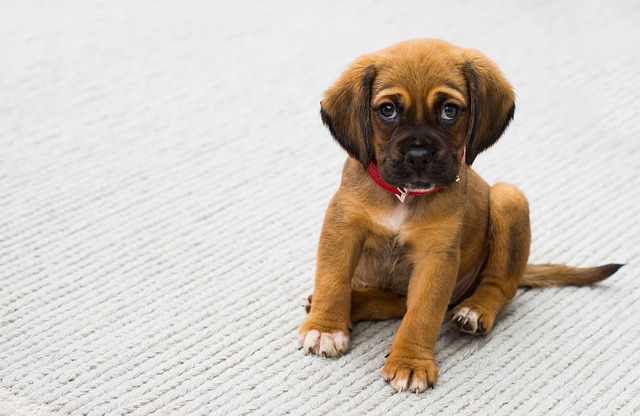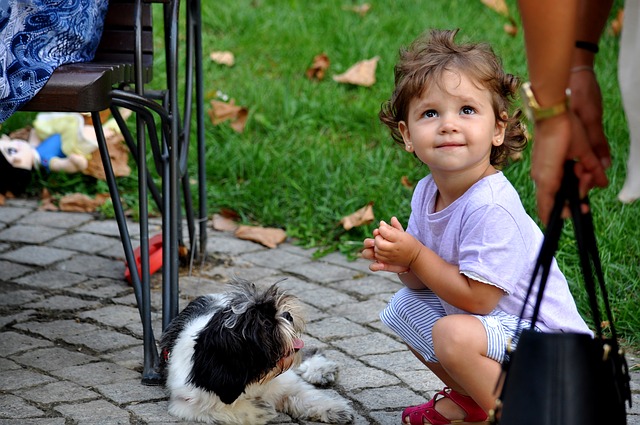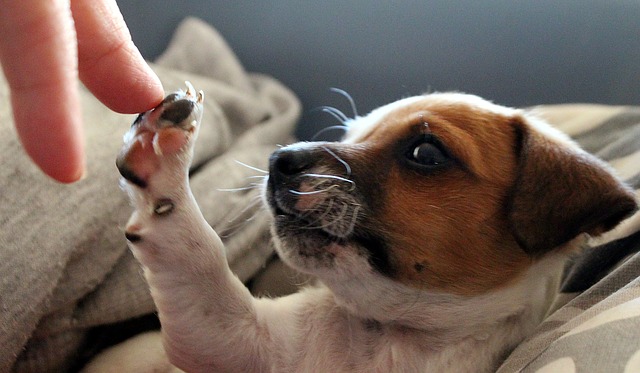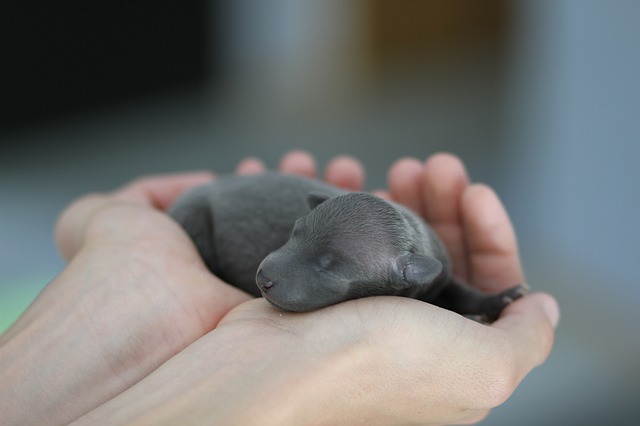Have you ever looked at your dog and thought, “You’re so cute, I could just squeeze you!”? You certainly aren’t alone! The desire to pinch a baby’s cheeks or bite an adorable pup’s ear are examples of a phenomenon known as cute aggression. Recent research suggests this desire for rough lovin’ is not only normal, it may serve an evolutionary purpose.

Katherine Stavropoulos, a licensed clinical psychologist with a background in neuroscience, first heard the term “cute aggression” when she read a research report from a team of Yale University psychologists in 2015.
“The Yale researchers initially found that people reported feeling cute aggression more in response to baby animals versus adult animals,” Stavropoulos said. “But even beyond that, people reported feeling cute aggression more in response to picture of human babies that had been digitally enhanced to appear more infantile, and therefore ‘more cute,’ by enlarging features like their eyes, cheeks, and foreheads.”

She began to wonder if there was a neural component to the phenomenon. Could there be a pattern of activity in the brain causing people to experience urges to squeeze, crush, or bite adorable creatures? And if so, what possible purpose could it serve?
Stavropoulos recruited 54 study participants and fitted them with electrode caps. They were then shown four blocks of 32 photographs divided into categories:
- Cute (enhanced) babies
- Less cute (non-enhanced) babies
- Cute (baby) animals
- Less cute (adult) animals
The participants viewed each block, then rated how much they agreed with a set of statements from a scale of 1 to 10. They also rated how overwhelmed they felt after seeing the photos (“I can’t handle it!” and “I can’t stand it!”) and whether they wanted to “take care of” the dogs/babies (“I want to hold it!” and “I want to protect it!”).

Based on their neural activity, Stavropoulos concluded that both the brain’s reward system and emotion system are involved when we experience cute aggression.
“There was an especially strong correlation between ratings of cute aggression experienced toward cute animals and the reward response in the brain toward cute animals,” Stavropoulos said. “This is an exciting finding, as it confirms our original hypothesis that the reward system is involved in people’s experiences of cute aggression.”
The brain’s reward system deals with motivation, such as feelings of wanting and pleasure. In addition, the level of cute aggression a person feels seems to be tied to how overwhelmed they are feeling.
“Essentially, for people who tend to experience the feeling of ‘not being able to take how cute something is,’ cute aggression happens,” Stavropoulos said. “Our study seems to underscore the idea that cute aggression is the brain’s way of ‘bringing us back down’ by mediating our feelings of being overwhelmed.”

Oddly enough, this may be an evolutionary adaptation to ensure people are able to care for ridiculously cute creatures such as their own offspring.
“For example, if you find yourself incapacitated by how cute a baby is — so much so that you simply can’t take care of it — that baby is going to starve,” Stavropoulos said. “Cute aggression may serve as a tempering mechanism that allows us to function and actually take care of something we might first perceive as overwhelmingly cute.”

In the future, Stavropoulos hopes to explore cute aggression in groups such as mothers with postpartum depression, people with autism spectrum disorder, and participants with and without babies or pets.
“I think if you have a child and you’re looking at pictures of cute babies, you might exhibit more cute aggression and stronger neural reactions,” she said. “The same could be true for people who have pets and are looking pictures of cute puppies or other small animals.”
H/T to Science Daily
 Toledo, United States.
Toledo, United States.